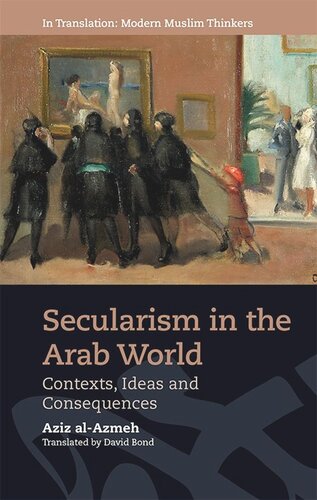

Most ebook files are in PDF format, so you can easily read them using various software such as Foxit Reader or directly on the Google Chrome browser.
Some ebook files are released by publishers in other formats such as .awz, .mobi, .epub, .fb2, etc. You may need to install specific software to read these formats on mobile/PC, such as Calibre.
Please read the tutorial at this link: https://ebookbell.com/faq
We offer FREE conversion to the popular formats you request; however, this may take some time. Therefore, right after payment, please email us, and we will try to provide the service as quickly as possible.
For some exceptional file formats or broken links (if any), please refrain from opening any disputes. Instead, email us first, and we will try to assist within a maximum of 6 hours.
EbookBell Team

4.0
16 reviewsThis book is a translation of Aziz al-Azmeh’s seminal work Al-'Ilmaniya min mandhur mukhtalif that was first published in Beirut in 1992. Both celebrated and criticised for its reflections on Arab secularisation and secularism in the modern history of the Arab World, it is the only study to date to approach its subject as a set of historical changes which affected the regulation of the social, political and cultural order, and which permeated the concrete workings of society, rather than as an ideological discussion framed from the outset by the assumed opposition between Islam and secularism.
The author takes a comprehensive analytical perspective to show that an almost imperceptible yet real, multi-faceted and objective secularising process has been underway in the Arab world since the 1850s. The early onset was the result of adapting to systemic novelties introduced at the time and a reaction to the perceived European advance and local retardation. The need for meaningful reform, and the actions taken in order to put in place a new organisation of state and society based on modern organisational and educational criteria, rather than older, religious traditions, stemmed from the perceived weakness of Arab polities and from an internal drive to overcome this situation.
The book follows these themes into the close of the 20th century, marked with the rise of Islamism. A preface to the English translation takes a retrospective look at the theme from the vantage point of social, political and intellectual issues of relevance today.